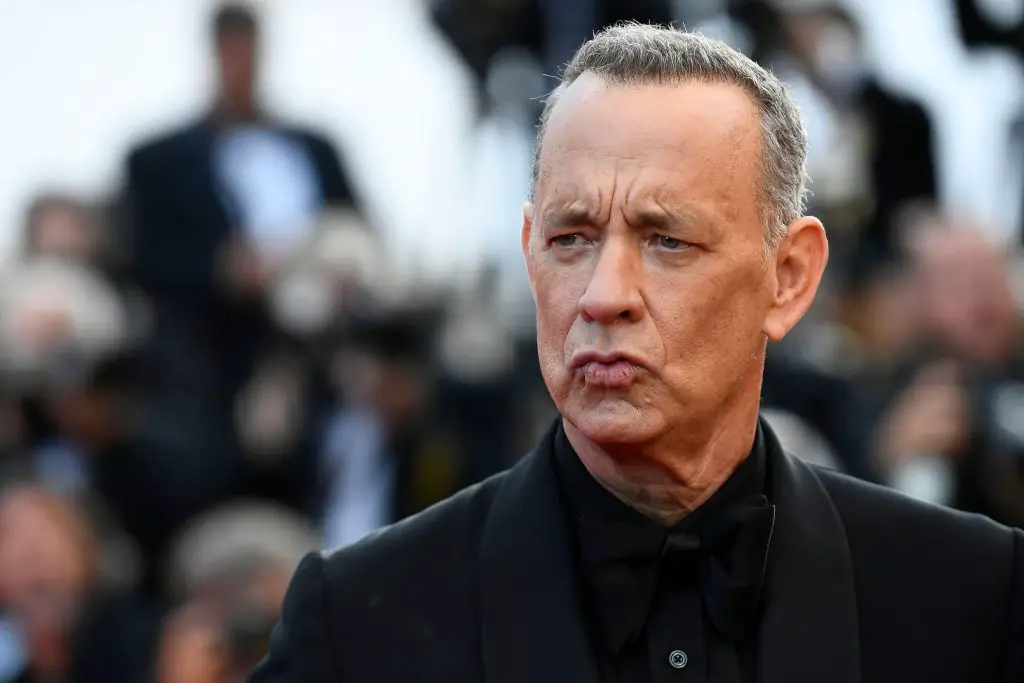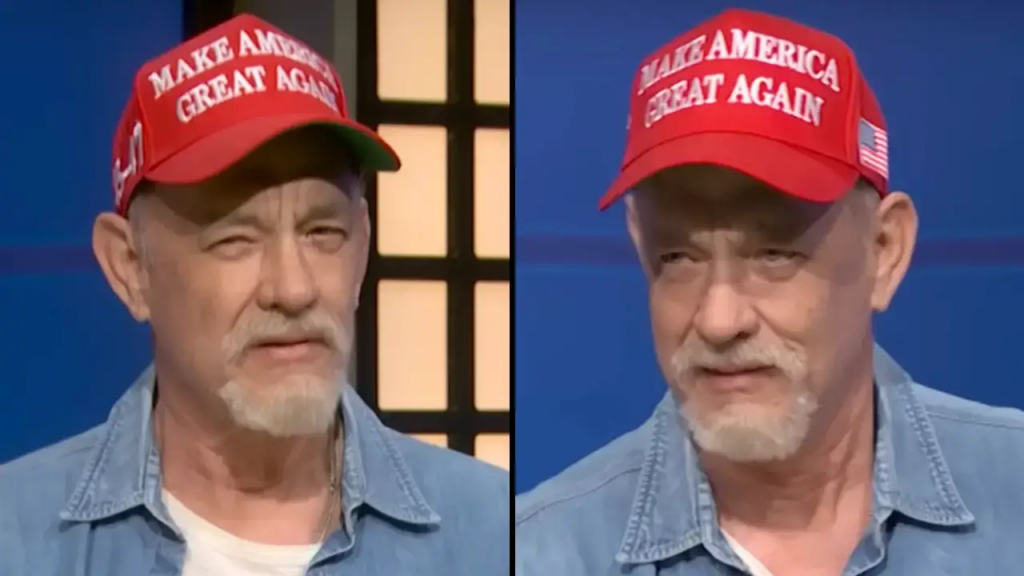Tom Hanks, a beloved Hollywood icon known for his affable on-screen presence and storied acting career, found himself at the center of a social media firestorm following his surprise appearance on Saturday Night Live‘s 50th-anniversary special. The controversy erupted after Hanks reprised his role as Doug, a stereotypical Trump supporter, in the widely popular ‘Black Jeopardy’ sketch. While the sketch was intended to provide satirical commentary, it instead ignited a wave of outrage, with many viewers accusing Hanks and SNL of perpetuating offensive stereotypes and directly mocking 77 million Americans who voted for Donald Trump. The backlash has been fierce and relentless, sparking heated debates about political satire, social responsibility, and Hollywood’s perceived cultural bias.

Hanks’ surprise appearance was initially met with excitement and nostalgia. A ten-time SNL host and a proud member of the Five-Timers Club since 1990, Hanks has long been celebrated as one of the show’s most cherished guest stars. In the Peacock docuseries SNL50: Beyond Saturday Night, Hanks fondly reflected on his history with the show, describing hosting SNL as “the single most exciting thing that has happened in my career.” His connection to SNL is undeniable, with his charismatic performances leaving an indelible mark on the show’s legacy.

However, the charm quickly faded as the sketch aired. In the controversial scene, Hanks once again portrayed Doug, a Trump supporter sporting a red MAGA hat, participating in the satirical ‘Black Jeopardy’ game show segment hosted by Kenan Thompson. The humor was built around cultural misunderstandings and exaggerated stereotypes, culminating in a handshake gag where Doug hesitates to shake the host’s hand—a callback to Hanks’ original portrayal of the character in 2016. But what was once hailed as clever satire was now perceived as tired, forced, and, to many, outright offensive.
Social media erupted almost immediately, with the backlash primarily centered on the portrayal of Trump supporters as ignorant, backward, and implicitly racist. Political commentator Link Lauren was among the first to voice his disapproval, posting on X (formerly Twitter), “Tom Hanks just came out on ‘SNL’ in a MAGA hat for a bit. This show wonders why their ratings are in the gutter. Trump won the popular vote. This tired trope that MAGA is racist is disgusting. ‘SNL’ is an unfunny show for snobbish liberal elites.” His criticism was echoed by countless others who saw the sketch as an outdated and unfair attack on conservative Americans.

The flood of social media comments reflected widespread anger and disappointment. One user wrote, “I don’t get why it’s ‘funny’ or even acceptable to directly insult and demean 77 million people. Tom Hanks is an a** for that skit.” Another stated, “SNL and Tom Hanks recycled their joke making fun of 77 million Americans, portraying them as dumb, racist rednecks. They still haven’t figured out why they lost.” The recurring sentiment was that the sketch relied on lazy stereotypes and failed to deliver fresh, relevant satire, leading many to question SNL’s approach to political comedy.
Interestingly, even longtime fans of Hanks and SNL were divided. Some appreciated the humor and defended the sketch as harmless satire, arguing that political comedy has always been a part of SNL’s DNA. However, others felt the sketch was needlessly divisive and undermined Hanks’ typically inclusive public image. The polarized response highlighted the ongoing cultural and political tensions in the United States, where satire is increasingly scrutinized for its impact on public discourse.
The controversy also spilled over into mainstream media discussions, with prominent voices weighing in on the issue. On The View, co-host Joy Behar acknowledged the anger from Trump supporters, stating, “The fact remains that they’re making anyone who voted for Trump look like a racist, and that’s why they’re mad.” She elaborated, “I personally would never do that because I don’t believe that any group is one thing.” Behar’s nuanced perspective suggested that while political satire can be effective, it must avoid overly broad generalizations that alienate large segments of the population.
However, not all opinions were sympathetic to the backlash. Behar’s co-host, Alyssa Farah Griffin, a former Trump White House staffer, downplayed the controversy, suggesting the outrage was exaggerated. Meanwhile, former SNL cast member Victoria Jackson publicly expressed her disappointment with Hanks’ participation, telling TMZ that she found the sketch offensive and in poor taste.
The backlash also reignited debates about Hollywood’s political leanings, with many conservatives accusing SNL of being an elitist platform disconnected from mainstream America. Critics argued that the sketch reflected a broader cultural bias in entertainment, where conservative viewpoints are often mocked or misrepresented. This sentiment was encapsulated by another social media user who commented, “SNL is an unfunny show for snobbish liberal elites.”
Despite the backlash, some defended Hanks and SNL, arguing that satire is meant to provoke thought and challenge societal norms. They pointed out that SNL has a long history of political satire, skewering politicians and public figures from both sides of the aisle. Supporters argued that comedy’s role is to push boundaries and spark conversations, even if it occasionally offends.
Yet, the core criticism remained focused on the portrayal of Trump supporters. Many felt that the sketch painted an unfair caricature, reducing a complex and diverse group of people to a one-dimensional stereotype. This perception was exacerbated by the repetition of the handshake gag, which, although improvised in the original 2016 sketch, felt stale and forced in the new version. “The hilarious handshake/recoil had already been done in Tom’s first MAGA sketch… which, unfortunately, made this one feel forced/awkward,” a social media user noted, criticizing SNL’s reliance on recycled jokes.

As the controversy continues to unfold, it raises important questions about the role of satire in today’s hyper-polarized political climate. Should comedians be more sensitive to the diverse perspectives within their audience? Or is the purpose of satire to challenge and provoke, regardless of the backlash? The debate surrounding Tom Hanks’ SNL sketch reflects a deeper cultural divide, one that extends far beyond a comedy show or a single performance.